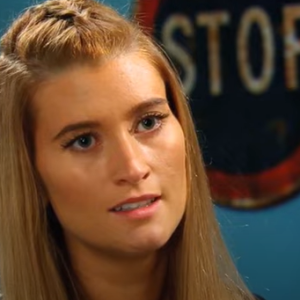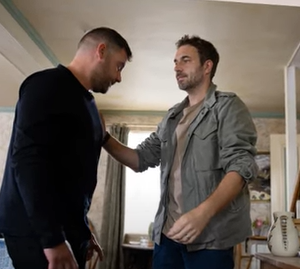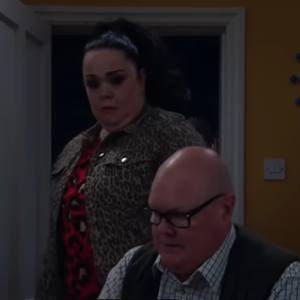Moira Dingle is a woman who, on her good days, tends the land with steady hands and on her fiercest days becomes an implacable storm; in Thursday’s hour-long double bill (episodes 10377–10378) she transforms into someone you absolutely do not want to test when she’s armed with a pitchfork, and the village of Emmerdale is about to feel the heat as lines are drawn, egos flare and secrets begin to stink like churned-up soil. Dylan’s ill-advised decision to break into the farm is the kind of misjudgement that reads like a dare: beneath the pastoral calm there is a readiness to retaliate, and Moira answered in full measure, promising him “a taste of his own medicine” in a moment that is both terrifying and intoxicating to watch; the camera lingers on her face, the pitchfork becomes less a tool and more a symbol of boundary-setting, of a woman who has had enough, and the viewer is forced into a conflicted sympathy — part of you cheers as she stands her ground, while part of you whispers caution, because in this world, one wrong swing can change every moral ledger. The scene crackles with theatricality: the hymn of rural life interrupted by a sharp, confrontational beat, and Moira’s fury is depicted not as mindless violence but as the shattering of a long-sustained patience; she has shouldered losses, guarded her family, and now acts as both judge and executioner in one pulse-pounding sequence that reminds us how close the border is between protector and avenger.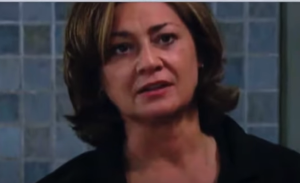
If Moira’s pitchfork moment supplies the visceral thunderbolt, the Barton versus Sugden showdown supplies the combustible banter and testosterone-fuelled spectacle that soaps do best, turning ordinary farm chores into a contest of pride and pedigree. When Robert Sugden and Ross Barton start throwing down over who’s tougher with a spade or who can shift more hay, it’s easy to laugh — a nostalgic nod to the kind of rural Olympics that used to settle scores and draw the whole community out to watch. Yet beneath the machismo lies a current of genuine rivalry, one that speaks to deeper fractures: pride, legacy, and the unspoken need to prove worth in a village that measures men by muscle as much as by character. The contest is staged like a gladiatorial farce with heartfelt stakes; each grunt and shove is freighted with history — old family slights, romantic entanglements and territorial claims — and the show leans into that tradition, letting viewers relish the rough-and-ready humour while sensing that this kind of posturing rarely ends without emotional fallout. Will it be a bit of noisy nonsense or the trigger for something nastier? The script places bets on the latter: when egos collide in an arena that used to resolve disputes with physical tests, there’s always the possibility grudges will harden, alliances will shift, and past wounds will be re-opened under the guise of sport.
Meanwhile, there is another thread running quietly through both clashes that gives the episodes their darker undercurrent: John’s behavior has a shadow to it, a sense that pieces are being moved on a board only he understands, and the unease is palpable. The show’s direction frames him in half-shaded shots and private conversations that trail off, raising the suspicion that he’s orchestrating something behind the village’s back — a clandestine plan that may not yet be visible but whose consequences could be seismic. Whether John is scheming for reasons of personal gain, protection, or some desperate attempt to right a past wrong, the writing teases us with the sense that his actions will ripple outward, touching the very turf where Moira stands and the pride contest between Robert and Ross plays out. That skulduggery gives weight to the rural melodrama; it suggests that the pitchfork and the shovels are not just instruments of labour or spectacle but symbols in a larger struggle where the stakes include safety, reputation and the future of the farmed community. The viewer is meant to feel that low-level dread — the kind that tightens your stomach when a character’s motives are obscured — and to start connecting the dots: how might John’s hidden moves destabilize Moira’s household, or be used as leverage in the Barton-Sugden feud? The episodes plant seeds of paranoia, and the harvest promises to be both bitter and abundant.
What makes these episodes land is their emotional honesty underneath the heightened action; the show doesn’t simply stage fights and mysteries for spectacle, it uses them to pry at the characters’ soft spots. Moira’s fury is not performative, it’s cumulative — the audience senses a long-simmering accumulation of slights and threats that finally cracks her calm exterior — and the Barton-Sugden contest becomes a mirror for deeper insecurities, not just showboating. The consequence for all involved is the same: once boundaries are physically asserted and secrets are weighed against pride, the options narrow and compromise becomes costly. The narrative is careful to let the viewers witness the human cost: relationships frayed, trust strained and the thin veneer of pastoral peace splintered into splinters. That is the emotional engine of the episodes — a reminder that rural life is not always quaint, that the soil often holds buried resentments, and that in a village where everyone’s business is everyone else’s, a single misstep can become a communal wound. 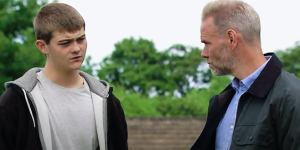
By the final beat, the episodes leave the audience teetering between catharsis and dread: Moira has made a stand, Ross and Robert have bared their pride, and John’s secretive behaviour promises a reckoning that could make all these confrontations look small. Emmerdale has a knack for turning the commonplace into drama, squeezing out meaning from a spade’s scrape and a thrown look, and these two episodes exemplify that craft. They ask the audience to choose sides, to weigh justice against revenge, and to consider whether violence — even symbolically delivered — can ever be a true solution to the slow-burning conflicts that haunt family and farm. The aftermath will ripple through the village: alliances will be tested, reputations revised, and the harvest of these choices will feed storylines for weeks to come. So was Dylan foolish to break in? Absolutely. Did Moira overstep? Perhaps. Was the Barton vs Sugden showdown entertaining and dangerous in equal measure? Without doubt. And as for John — the creeping question remains: what exactly is he hiding, and when will the rest of the village realise the game is already being played?

